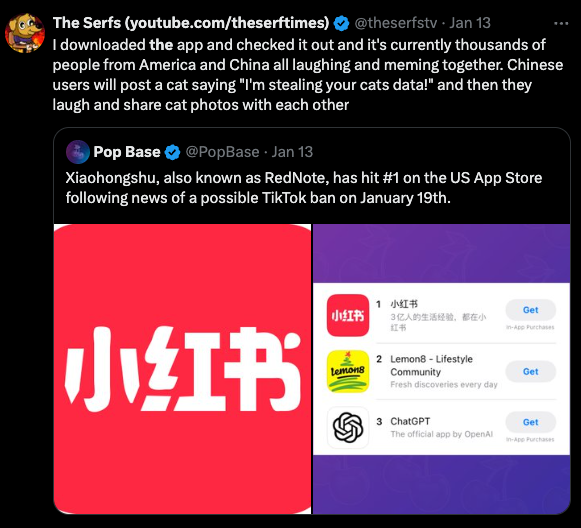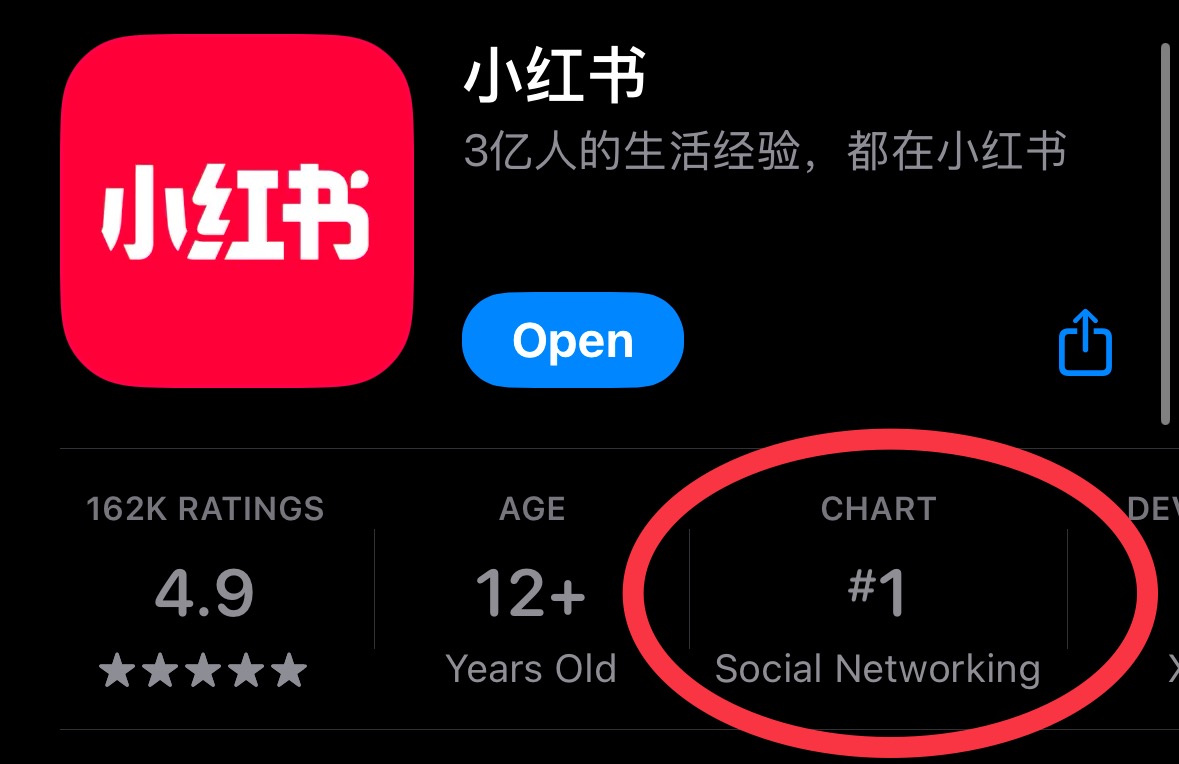There’s something delightfully ironic about the U.S. government’s TikTok ban pushing Americans toward Xiaohongshu - translated as “Little Red Book” but starting to be called “Red Note” in the US, an app that is more explicitly controlled by the Chinese government than TikTok ever was. The memes that have come out of this irony are top tier.

But beyond the irony lies a profound lesson about the growing disconnect between how governments view the world and how their citizens actually live in it.
The Disconnect
The government’s reasoning for banning TikTok centers on concerns about data collection and foreign influence. And while these aren’t invalid concerns in theory, the reality on the ground tells a different story. In the same month that Congress focused on banning an app primarily used for dance videos and cat memes, we’ve seen unprecedented drone activity over critical infrastructure in the Northeast and learned about what’s being called “the worst telecom hack in our nation’s history” - where Chinese hackers gained access to actually listen to phone calls and read text messages. Like…all of them.
This stark contrast between what governments prioritize and what actually threatens security isn’t just ironic - it’s deeply telling about how disconnected policy decisions have become from reality.
Beyond Politics: Human Connections in a Digital Age
What’s even more fascinating and reenforcing to me on this point is watching what’s happening on Xiaohongshu right now.
Regular Americans and Chinese citizens are coming together, sharing pictures of their everyday lives, helping each other with language practice, and creating shared cultural moments. Americans are captioning their posts in Mandarin while Chinese users create English language tutorials, all while building genuine human (and many many cat) connections that transcend geopolitical tensions.
I’ve seen this before. In times of conflict, regular people find ways to connect despite their governments’ stances. The human desire to share and support often overcomes imposed barriers.
When Russia invaded Ukraine, I saw this firsthand: European colleagues offered homes to Ukrainian teammates, and Russian colleagues openly condemned their government, many seeking to leave. These human connections and reactions were profoundly different from the way governments discussed and treated each other.
Security Theater vs. Real Threats
Let’s be clear: while Congress focuses on banning TikTok over theoretical concerns, we have concrete evidence of telecom security breaches that could let foreign actors monitor unencrypted communications. We’ve also seen unexplained drone activity over sensitive sites—real national security issues needing immediate attention.
Data privacy concerns aren’t unique to Chinese companies. For decades, foreign and domestic firms have mishandled user data. Remember Cambridge Analytica? That wasn’t a foreign government—it was Facebook allowing data harvesting to manipulate millions of Americans for political gain. Many companies still treat data as a commodity, not something to protect.
If governments truly want to protect privacy and security, they could look to Europe’s GDPR. It’s not perfect, but it tackles the real issue: protecting citizens’ data from misuse by any entity, foreign or domestic. Instead, we get Cold War-era paranoia disguised as policy.
The TikTok ban and migration to X (not Twitter) expose an uncomfortable truth: the government prioritizes domestic business interests over citizen privacy. When Meta or Google lose market share to TikTok, it’s a “national security crisis.” But when those same companies mishandle data? Silence.
This isn’t just hypocrisy—it’s a failure to protect citizens while shielding corporate interests. Americans see through it. The move to X (not Twitter) isn’t teenage rebellion; it’s a clear signal that people recognize the difference between real security measures and political theater.
What This Really Tells Us
The migration to X (not Twitter) reveals something fundamental about our increasingly connected world: the traditional model of national governance is struggling to keep pace with how people actually live and connect in the digital age. Governments still operate in a world of clear boundaries and binary choices - us vs. them, secure vs. insecure - while their citizens live in a much more nuanced reality.
Note after the note:
One U.S. Representative has literally been in a nursing home for months
while still being paid for a “full-time” Congressional job.
This isn’t the way—the way is TERM LIMITS FOR CONGRESS.
What interests me most is the growing gap between how governments view the world and how citizens experience it. While governments draw lines and build walls, citizens build bridges and form connections that transcend boundaries.
The real challenge isn’t choosing between security and openness—it’s finding ways to ensure genuine security while acknowledging how people actually live and connect in our interconnected world. Until governments bridge this understanding gap—and lower the average age in Congress—we’ll keep seeing well-meaning policies backfire in ironic ways.
Meanwhile, millions of Americans and Chinese citizens will keep connecting and sharing their lives (and cats) on X (not Twitter) post at a time. The best response to artificial barriers? Creative ways around them.

